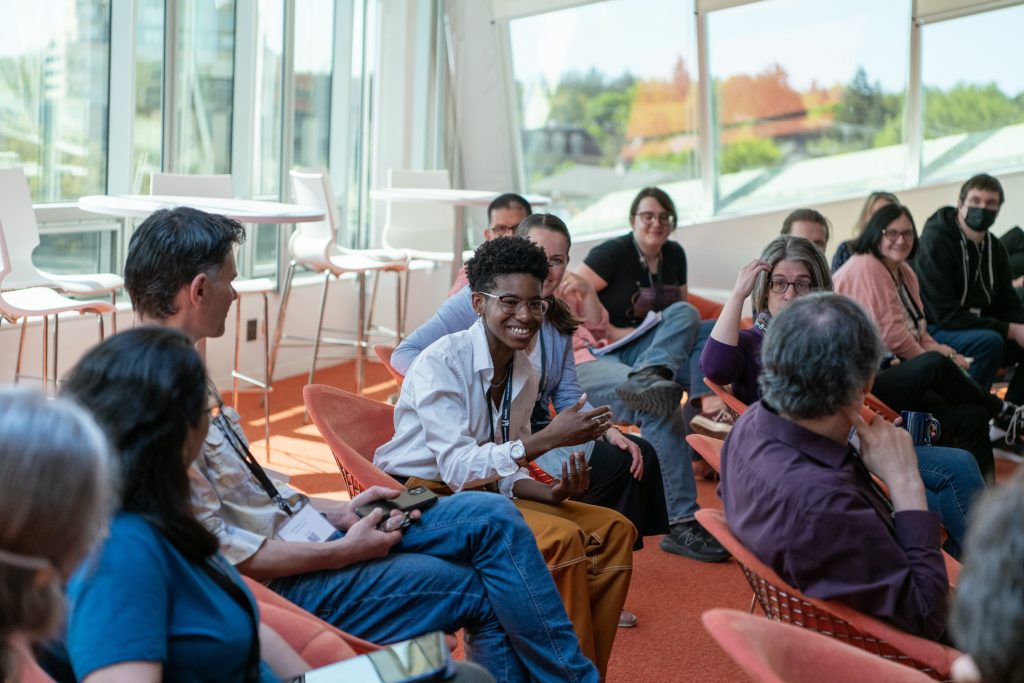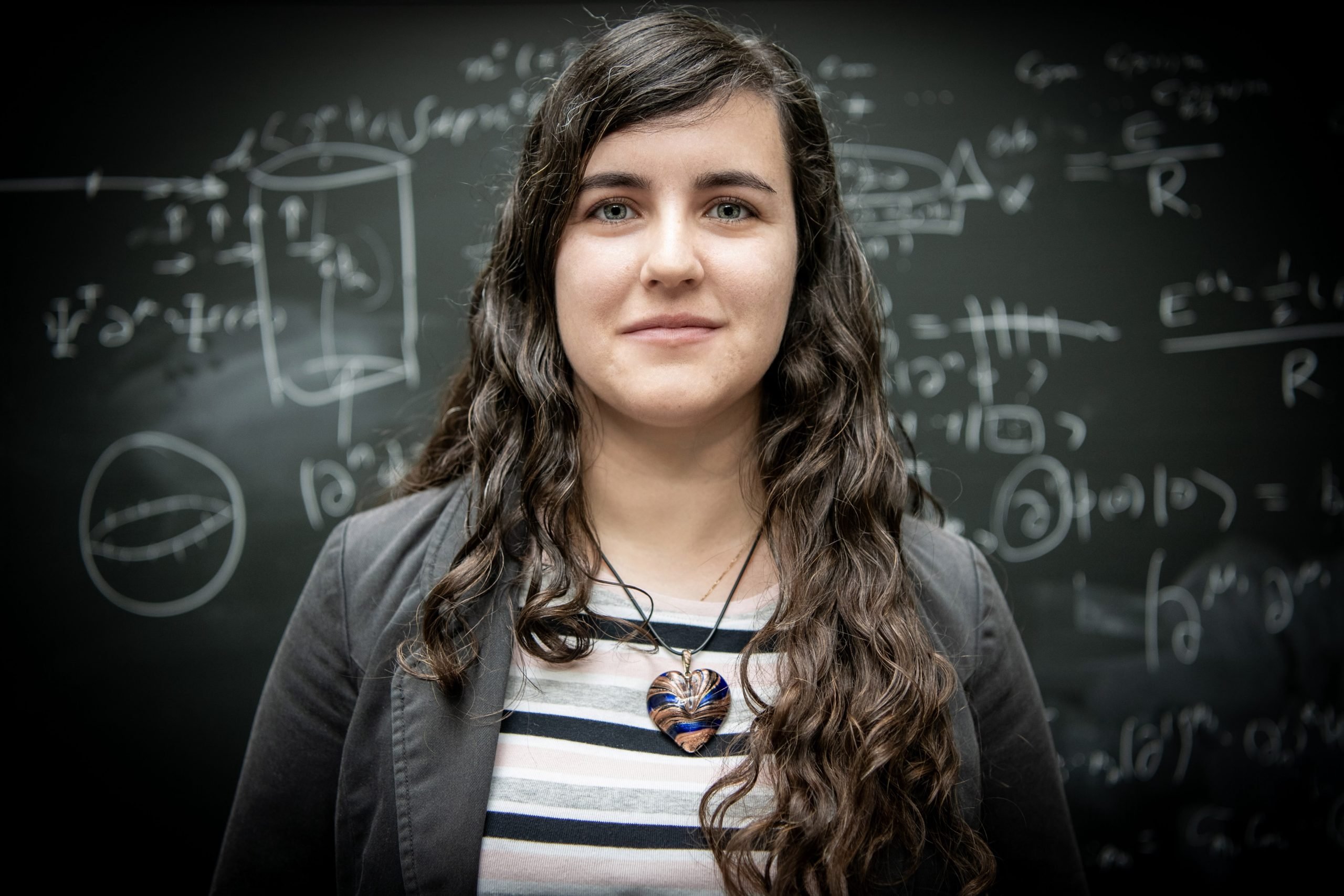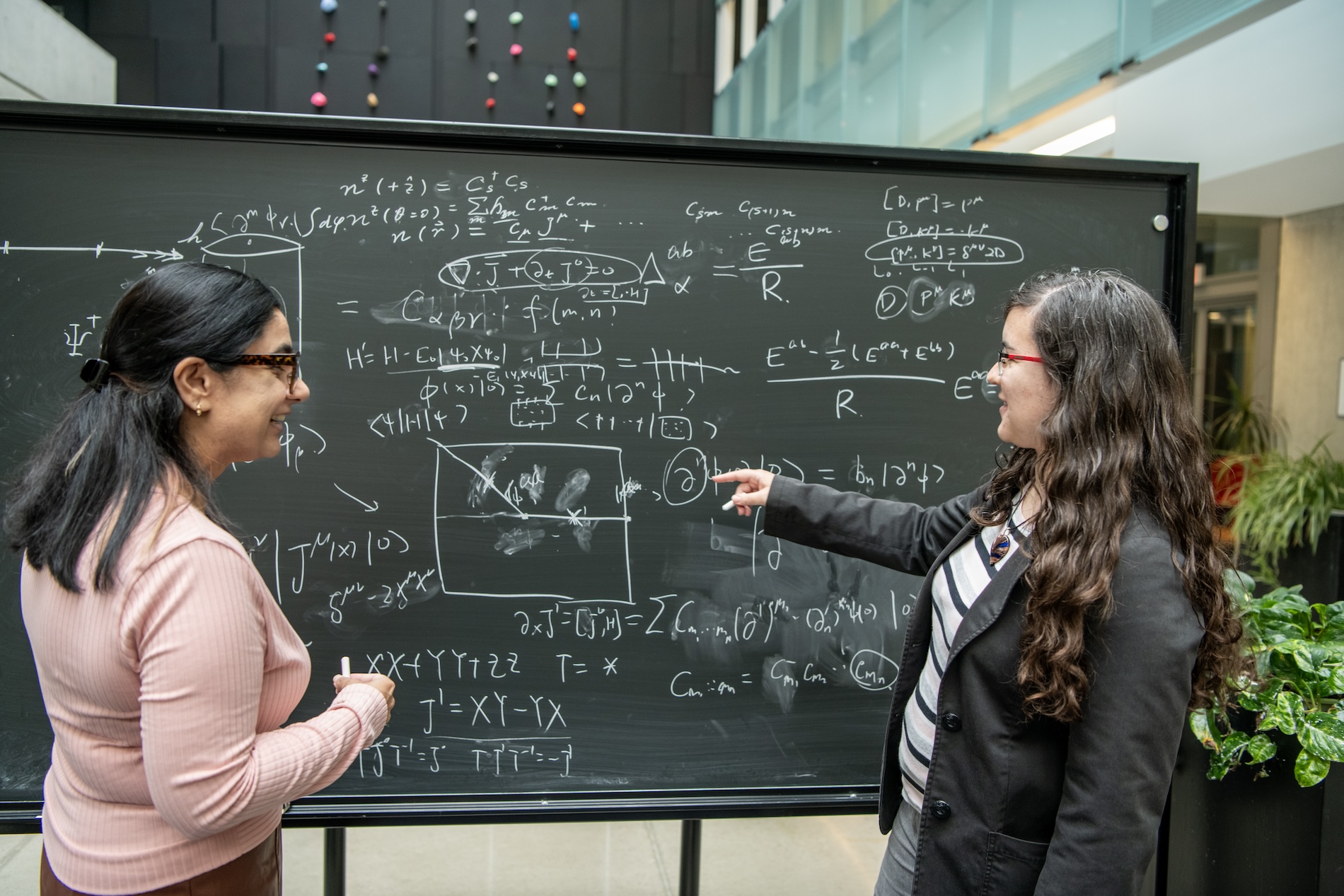At Perimeter, our goal is to create a culture where all curious minds are welcome and all Perimeter residents – students, postdocs, faculty, and staff – are encouraged to learn, listen, participate, and build competencies around topics in equity, diversity, and inclusion (EDI) that they can take with them into the wider community, be it in academia or industry, in Canada or internationally. Perimeter’s EDI initiatives over the past decade have aimed to reduce barriers to access for members of historically excluded groups and promote diverse excellence in physics.
Tailored considerations for EDI best practices have been built into initiatives at Perimeter in research, training, and public outreach to make all voices heard and show that science is for everyone. A few key examples include:

Launched in 2018, the Inclusive PI Platform is a grassroots effort to advance EDI initiatives at Perimeter. Each year, residents are encouraged to form new committees around topics of interest to support EDI at Perimeter. This year more than 25 percent of Perimeter residents, across the entire Institute – from students to faculty to administrative staff – participated in at least one Platform working group.
Some highlights from this past year are given below:
The Mental Health Working Group created a chalkboard display to share “Stories of self-doubt,” in collaboration with the in-house therapy team, to tackle issues around stress and impostor syndrome.
The Quantum Ethics Working Group hosted a session on ethical use and equitable access to quantum technologies as part of a mini-course on AI organized through Career Trajectories.
The Women in Physics Working Group started an EDI Journal Club that meets once a month, inviting all different Platform groups to present and discuss EDI-relevant literature. These meetings create a space to discuss EDI topics and issues, as well as a space for collaboration across working groups.
In celebration of the annual International Day of Women and Girls in Science on February 11, the Women in Physics Working Group at Perimeter asked women-identifying students, researchers, faculty, and staff to share their stories about being a woman in physics. Perimeter residents shared what inspired them to pursue a career in physics, what barriers they think still need breaking down, and their advice for future physicists.
Perimeter’s programs to attract and retain more women in science are collectively referred to as the Emmy Noether Initiatives, named after pioneering German mathematician Emmy Noether, whose work underpins much of modern physics. The Emmy Noether Initiatives aim to empower and support women and girls to enter, and succeed in, physics.
The initiatives include outreach to high school students through the “Inspiring Future Women in Science” event, support of graduate students through the Emerging Talent Fund, and career development opportunities for women researchers. The initiatives are supported, in part, through the generosity of the Emmy Noether Council and donors in the Emmy Noether Circle.

With support from the Simons Foundation, the Simons Emmy Noether Fellowship program enables visiting women scientists to spend up to one year (under the faculty stream) or three months (under the new postdoctoral stream) in Perimeter’s thriving multidisciplinary community. The scientists gain a unique opportunity to pursue their work intensively, free of teaching and administrative duties, and to develop new international peer networks.
Flexibility is a key feature of the program, and one that helps mitigate the barriers faced by women in physics. Perimeter works with fellows to tailor their stays, which may include arranging teaching buyouts with their home institutions, nearby accommodation, and childcare if required. The fellows also receive support to bring graduate students and/or postdoctoral researchers, as well as administrative and logistical support. Many Simons Emmy Noether Fellows return in subsequent years, continuing to build ties to Perimeter and the wider scientific community. Hence, the program has lasting impact for past fellows.
PI People
Simons Emmy Noether Fellow

Simons Emmy Noether Fellow Angela Capel Cuevas, a junior professor at Eberhard Karls Universität Tübingen in Germany, has had Perimeter on her radar for a while. When she applied for the Simons Emmy Noether Fellowship she had started a faculty job after her first postdoctoral position and saw the time she was able to devote to research dramatically decrease. Her time at Perimeter, through the Simons Emmy Noether program, gave her the opportunity to not only focus on advancing her existing research but also seek multidisciplinary connections and form new collaborations with Perimeter faculty, postdocs, and students. Her research on quantum systems was the subject of a lively seminar during her visit, which led to many new connections with Perimeter researchers.
It’s really nice to sit down and start doing calculations at 2:00 in the afternoon and finish at 7:00. I look up and it’s dark and I’ve done something brand new.
Angela Capel Cuevas, Simons Emmy Noether Fellow
Eight researchers were newly appointed in 2023/24, with visits scheduled in the coming fiscal year:
Camille Avestruz, University of Michigan
Masha Baryakhtar, University of Washington
Seyda Ipek, Carleton University
Hae-Young Kee, University of Toronto
Lara Arielle Phillips, University of Notre Dame
Ana-Maria Raclariu, King’s College London
Fereshteh Rajabi, McMaster University
Julia Wildeboer, Brookhaven National Laboratory
Seven talented postdoctoral researchers were newly appointed in 2023/24, with visits scheduled in the coming fiscal year:
Maxence Corman, Max Planck Institute for Gravitational Physics
Renata Ferrero, Institute for Quantum Gravity
Sophia Gad-Nasr, Technion – Israel Institute of Technology
Maria Mylova, Kavli Institute for the Physics and Mathematics of the Universe
Elena Pinetti, Fermilab National Accelerator Laboratory
Marija Tomašević, University of Amsterdam
Yasaman Yazdi, Dublin Institute for Advanced Studies
